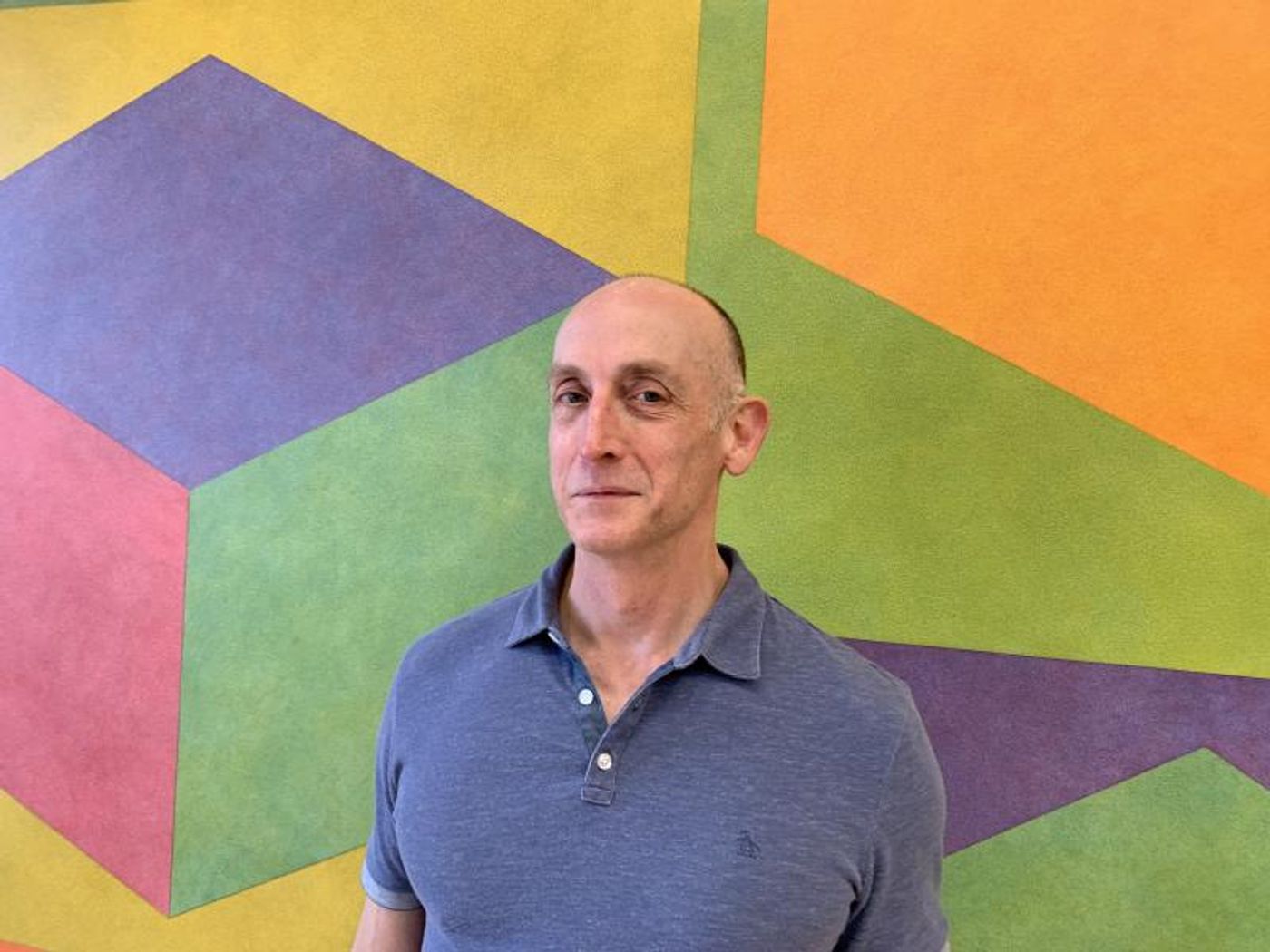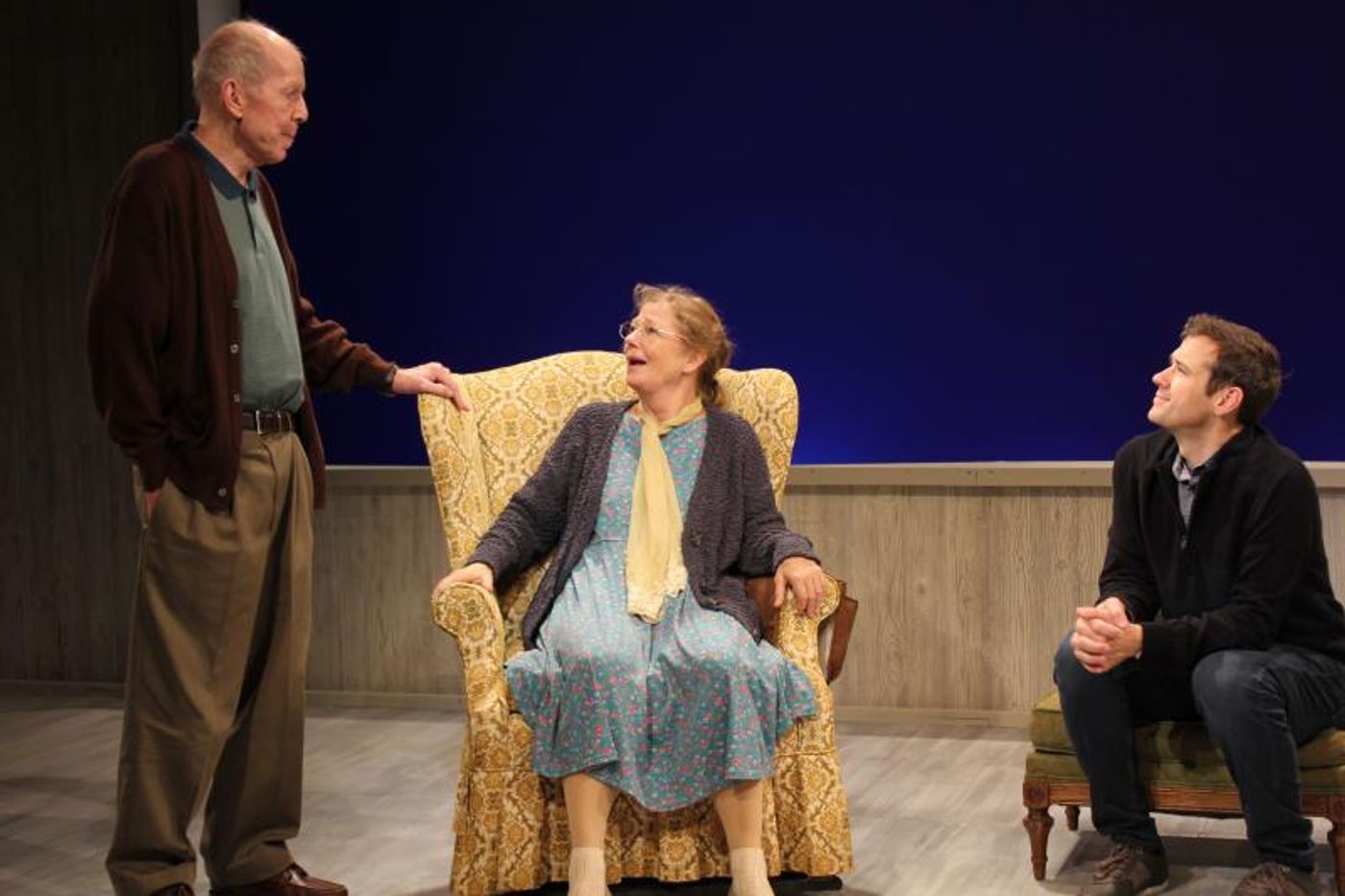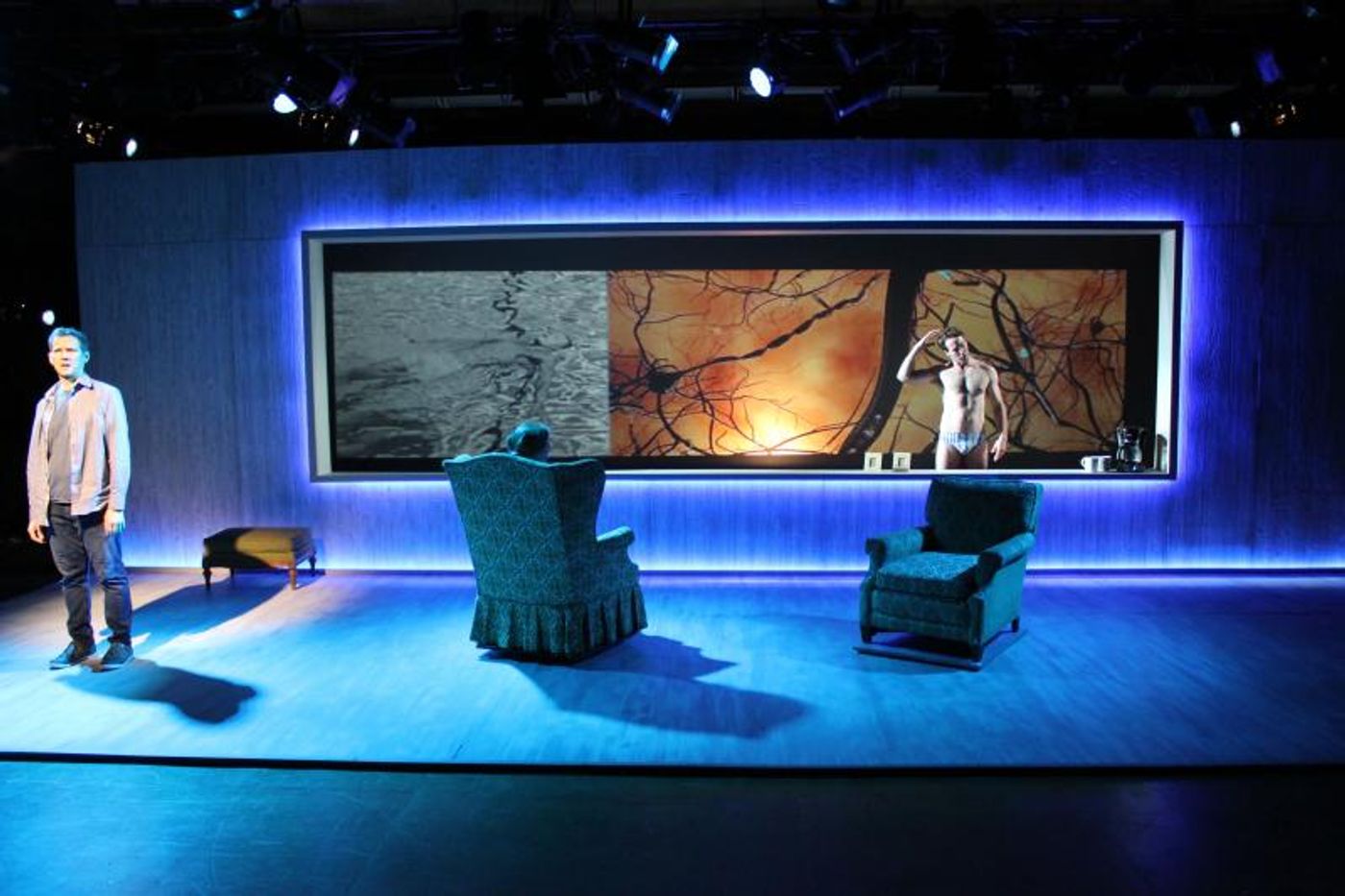Interview: Paul David Young on Reconciling the Past with ALL MY FATHERS

They say art imitates life, and Paul David Young is no stranger to this.
He's made his career off of the unconventional, telling real-world stories in new ways and exploring life from a multitude of angles, with one of his most recent productions tackling the current political administration in a highly-praised satire. Young is no stranger to success either, as he's garnered numerous awards and accolades including the Kennedy Center's Paula Vogel Playwriting Award, and being a finalist for the Kendeda Fellowship and the Kennedy Center's John Cauble Short Play Award.
And now he takes it one step further with his newest production, All My Fathers. All My Fathers tells the story of Young's own devoutly Christian, Southern upbringing and how it was all rewritten with a sudden, surreal confession by his elderly mother regarding his paternity.
Yes, art imitates life, but in this case one could almost say that life also imitates art, as Young incorporates classic family plays such as Shakespeare's Hamlet, Arthur Miller's All My Sons and more to help weave the picture of his life for audience members every night.
With Obie-winning Director Evan Yionoulis at the helm, Young brings his family truth to the LaMaMa stage from October 3 to 20.
Young took a moment to chat with BroadwayWorld about the upcoming production.
What initially drew you to channel your personal story into this production?
This sudden, surprising assertion by my mother about my paternity fathered the play instantaneously, like Athena born from the head of Zeus. My life at that moment became a piece of theater, specifically an Ibsenian buried-secrets style plot. This was the kind of over-the-top story that I had never found quite credible, until it was happening to me in real time. The play began to write itself that very minute in my head. I didn't have a choice.
What was the creative process like?
I went through many drafts, beginning in a hyper realistic style, when I was too close to the events. I didn't know what the story was or meant. My first instinct was to stick to the facts, and let the audience decide, like a jury. I eventually wrote a version in German, just to shake up the process, and there I discovered the theatricality and structure of the play. I understood who the cast of characters would be and how the play would weave together truth, fiction, hallucination, dream, and memory. The story itself continued to evolve as I wrote, and the play became in part the story of its own strange creation.
What was it like working with Obie-winner Director Evan Yionoulis?
Wonderful, in a word. I was quite thrilled when Evan offered to direct the play after she read a couple of early drafts. I have of course followed her work closely. Seeing her production of Adrienne Kennedy's He Brought Her Heart Back in a Box at Theater for a New Audience last year was a great preview for me of what it would be like to work together on All My Fathers. I was so impressed by her thoughtful use of the TFANA space and the delicate unfolding of Kennedy's dreamlike tale. It helps that we have known each other a long time. We met in a French class in college.

What was it like incorporating such classic works like Oedipus, The Strange Discovery, and All My Sons?
The intertextuality came naturally in the writing, since I experienced these events as a kind of theater that happened to me. It dawned on me one day that much of dramatic literature deals with the family, including Oedipus, which specifically focuses on the mystery of paternal identity. Hamlet has a ghost father and a mother engaged in sexual betrayal. I discovered that these familial stories share themes and plotlines intersected with my story and that it was possible to compose the dialogue in my play by incorporating these other texts and, by inference, their stories and place in culture. It was eerie to find that, in a surprising number of instances, my parents had unknowingly quoted verbatim text from an existing play, such as All My Sons or Raisin in the Sun. In addition, in my work for some time, I have incorporated references. For example, a short play I wrote in graduate school that won a prize from the Kennedy Center (Aporia) incorporated U.S. State Department documents and television sports commentary. Faust 3: The Turd Coming, or The Fart of the Deal, my Trump satire of 2017, collaged Christmas songs, pop lyrics, poetry, Faust 1 & 2, and the Bible.
Was it cathartic in a way to work through your past by bringing it to the stage?
I don't know yet. We are currently in rehearsals: it is bizarre to see my life dramatized and re-enacted. I am hoping for catharsis. Perhaps that will come when the audience is in the room. Writing the play caused some of the events in the play to take place: the process became the story, which would not let up until it had reached its appropriate ending. I have not yet come to terms with the story myself. Indeed I don't even know what the whole story is. I have tried to tell as much of it as I know as truthfully as I can.
Why should audiences come see this show?
1. Evan has assembled an amazing cast and design team. I have every confidence that she will create a stunning, moving production.
2. Family. Everybody has some kind of family story. My own story is a bit on the extreme edge, but as I have found since I began the play, it is not so uncommon. The paternal mystery drives a lot of literature, and in the era of DNA testing there are many surprises. In the readings of the play, people in the cast and in the audience have spoken to me about their own similar stories. In every family, except the mythical perfect one, there is conflict. That's why family has always been such fodder for drama: people can see themselves in the paradigms of All My Sons, .jpg?format=auto&width=1400) Electra, Well, and other family plays.
Electra, Well, and other family plays.
3. Laughs. Despite the gravity its themes, the play has a lot of humour in it. We have been having a good time in rehearsal.
Is there anything you want to say to someone who may be experiencing a similar situation as you did as a child?
I'm sorry I can't help you. I'm still trying to dig my way out of a hole. Therapy, obviously. If anything, I would counsel anyone to accept the feeling of being somewhat vaguely uncomfortable with the picture of family that prevails in the popular imagination and that is perpetuated by religion. This unease could be grounded in something, or not. In any case, one shouldn't feel guilty about having a different kind of family or a different relationship with those you recognize as family than that portrayed in mass culture. My experience has also caused me to reevaluate the role of biology and environment/family in human development.
What's next for you after All My Fathers?
Like anyone with feelings of patriotism or fear for the future of the country or with any sense of ethics and respect for proper government, I am deeply disturbed by the Trump presidency and its degradation of everything of value in America, along with the threat to the health of its citizens as well as the planet as a whole. As a follow-up to my 2017 Trump satire (Faust 3: The Turd Coming, or The Fart of the Deal), I have been working on a satire based on Macbeth, which I have titled Macdonaldsbreath. It's very different from All My Fathers, but I feel a duty to keep fighting in any way I can until we are rid of this evil.
All My Fathers runs at La MaMa Downstairs from Oct. 3 - 20, 2019. For tickets and more information visit lamama.org.
Production Photo Credit: Paul David Young
Videos

